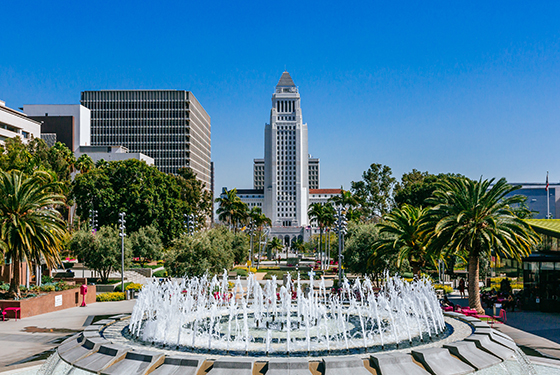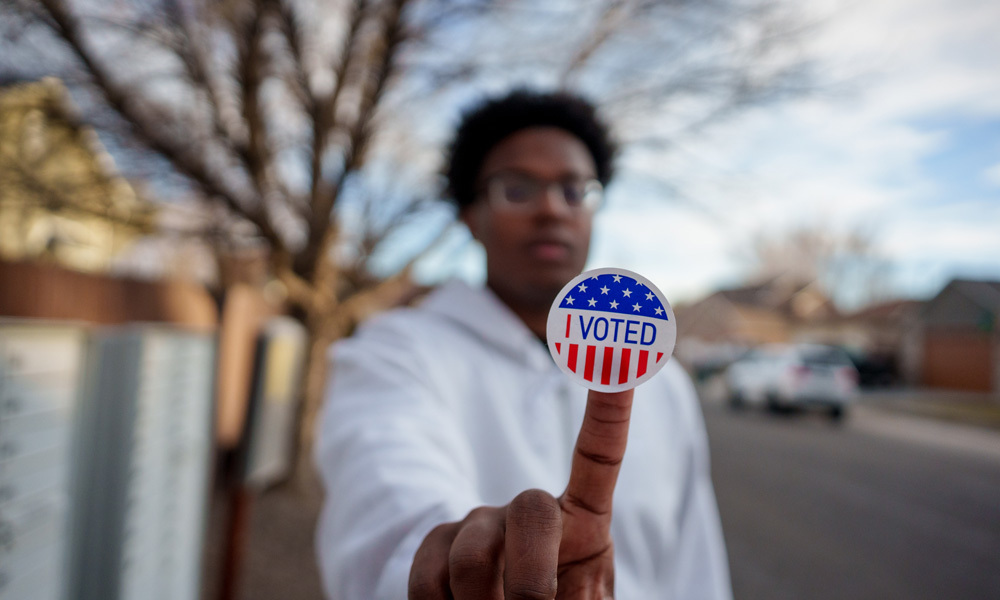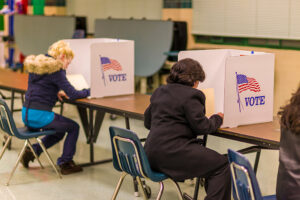Los Angeles – With swing states playing a pivotal role in the 2024 presidential election, new reports from the Center for Inclusive Democracy (CID) at the USC Sol Price School of Public Policy have found significant voter turnout disparities between white, non-Latino voters and voters of color in all nine battleground states.
The reports highlight the persistent “voter representation gap,” where voters of color remain underrepresented at the polls, despite substantial population growth. If narrowed by November, the research concludes, this gap could significantly influence election results, particularly in swing states that had particularly close election outcomes in 2020.
CID analyzed voter files from the 2020 general election for Latino, Black and Asian-American voters in Arizona, Florida, Georgia, Michigan, North Carolina, Nevada, Pennsylvania, Wisconsin and Texas. The study found that while the eligible voter populations of color in these swing states grew substantially from 2010 to 2020—outpacing the growth of the white, non-Latino population and often the general population—these voters of color had consistently lower turnout rates compared to white, non-Latino voters during the 2020 election.

Master of Public Policy
Advocate & Innovate for a More Just World
Effective public policy has the power to disentangle increasingly complex global and domestic challenges. With an MPP from USC, you will have that power too.
Find Out More“The huge number of eligible non-voters among communities of color in swing states presents an extraordinary opportunity for voter mobilization and engagement,” said CID Director Mindy Romero, the study’s lead author. “Getting more voters of color to the polls could be transformational and have the potential to impact election outcomes in November. Participation by these groups and all voters is foundational to our democratic values and processes.”
See individual briefs for each battleground state here. Several notable findings in select states include:
- Arizona: More than 850,000 Asian-American, Black and Latino eligible voters did not cast a ballot in Arizona’s 2020 presidential election, where the margin of victory was only 10,457 votes.
- Florida: Asian-American, Black and Latino eligible voter populations represented more than one-third of Florida’s eligible voters in the 2020 general election, yet a sizeable number of these voters – 2.2 million – did not cast a ballot, a number nearly six times larger than the vote margin of victory in the state.
- Georgia: Even with a rapid growth in the eligible voter populations for Latinos, Blacks and Asian-Americans, more than 1.2 million did not vote in 2020, more than 100 times the margin of victory in the state.
Earlier this year, CID issued a national report on voter turnout. The New Electorate: The Strength of the Latino, Black and Asian-American Vote report revealed that in the 2020 presidential election, Asian-American, Black and Latino eligible voters comprised nearly 30% of those eligible to vote in the U.S., but represented just over 22% of all votes cast, significantly lower than their share of eligible voters. The report found this entrenched voter representation gap evident across nearly all U.S. elections.
Center for Inclusive Democracy (CID)
The Center for Inclusive Democracy (CID) is part of the USC Sol Price School of Public Policy. CID’s mission is to improve the social and economic quality of life in U.S. communities by producing non-partisan research that informs policy and on-the-ground organizing efforts through education and outreach for a more engaged, transparent and representative democracy. CID conducts pioneering research that explores voting behavior, civic engagement, as well as electoral and economic issues at the intersection of social justice and democracy.
USC Sol Price School of Public Policy
For more than 90 years, the USC Sol Price School of Public Policy has sought to improve the quality of life for people and communities through path-breaking research and scholarship.





